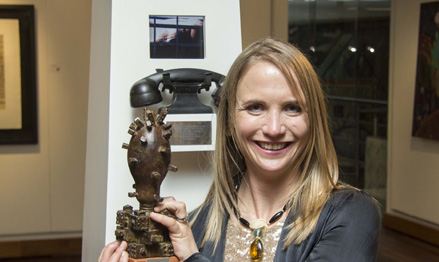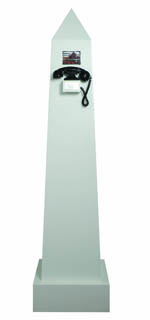Latest News Archive
Please select Category, Year, and then Month to display items
14 June 2024
|
Story Anthony Mthembu
|
Photo Suplied
 Jeremiah Hlahla, a UFS student completing his PhD in Botany at the University of Debrecen as part of an exchange initiative funded by the Erasmus+ Mobility Programme.
Jeremiah Hlahla, a UFS student completing his PhD in Botany at the University of Debrecen as part of an exchange initiative funded by the Erasmus+ Mobility Programme.
As part of an exchange initiative facilitated by the Erasmus+ Mobility Programme, Jeremiah Hlahla, a student at the University of the Free State (UFS), is nearing the completion of his PhD studies at the University of Debrecen in Hungary. Hlahla’s journey, which began in February 2024 and is set to conclude in July 2024, has been a remarkable learning opportunity. “As a first time-traveller to Europe, I have thoroughly enjoyed engaging with people from different countries and cultures,” he said.
The benefits of international collaboration
Hlahla is currently pursuing a PhD in Botany, focusing on plant stress physiology. “My current PhD project investigates the physiological, biochemical and morphological responses of vegetable-type soybean, or edamame, to combined drought and heat stress,’’ he explained. He considers the University of Debrecen the ideal institution to complete his research due to its extensive expertise and resources in similar projects. He noted that his colleagues at Debrecen conduct significant work on plant protection against biotic and abiotic stresses, including salt and drought stress, as well as proteins and amino acids in barley and other legumes.
Given the vast knowledge available on similar projects, Hlahla has found substantial engagement with his work at the University of Debrecen. “Upon arrival, I delivered an introductory lecture presenting my UFS project on the synergistic effects of combined drought and heat stress on the physiology and biochemistry of edamame. It was an engaging session as everyone could relate to my work and asked many questions,’’ he said.
Insights gained from the exchange
Hlahla has also gained valuable lessons that will assist him in his research career, including biotechnology and physiology tools. “I learned how to prepare samples and use high-performance liquid chromatography (HPLC) and reversed-phase ultra-high-performance liquid chromatography (UHPLC) to quantify proteins and amino acids,’’ he said. These techniques are beneficial not only for his current work but will also support future soybean research.
As his experience at the University of Debrecen nears its end, Hlahla reflects on the collaborations and friendships he has formed, which stand out as a significant highlight.
Another L’Atelier feather in the university’s cap
2013-07-24
|
 |
|
Pauline Gutter, winner of this year’s Absa L’Atelier competition
Photo: Supplied
23 July 2013 |
"Dagbreek: Die Dagbreker" - interview with Pauline Gutter (YouTube)
A former Kovsie won the Absa L’Atelier competition – South Africa’s most prestigious art competition – for the second year in a row. 
Pauline Gutter, who completed her BA Fine Arts degree at the UFS in 2003, is the second artist from the Free State to win the competition, which is in its 28th year of existence. In 2012, Elrie Joubert, another former Kovsie student from the Department of Fine Arts, won the competition as well.
As overall winner, Gutter receives a cash prize of R125 000 and six months’ residency in the studio apartment Cité Internationale des Arts in Paris, France.
Her winning entry, Die huweliksaansoek, is an interactive work consisting of a 1.8 m high association-rich obelisk, an engraved plaque, a small TV monitor and a farm-line handset. A video of a bull standing in a crush while semen is being drawn from it, is displayed. The viewer is invited to listen in voyeuristically. The soundtrack for the text is composed of statements and comments made by participants in the programme “Boer soek `n Vrou”. The question highlighted by the work, is, “does a farmer choose his future wife in the same way he breeds his stud animals?”
Pauline says her association with the farm, principled parents and strong family ties serve as inspiration for her work. To express her artistic voice in a contemporary environment is to be a close observer of society, she says. “It’s to ask questions which confront the viewer in a provocative way.”
Her advice to new artists is “hard work, sustainability and commitment. Keep looking until you find the place where you fit in.”